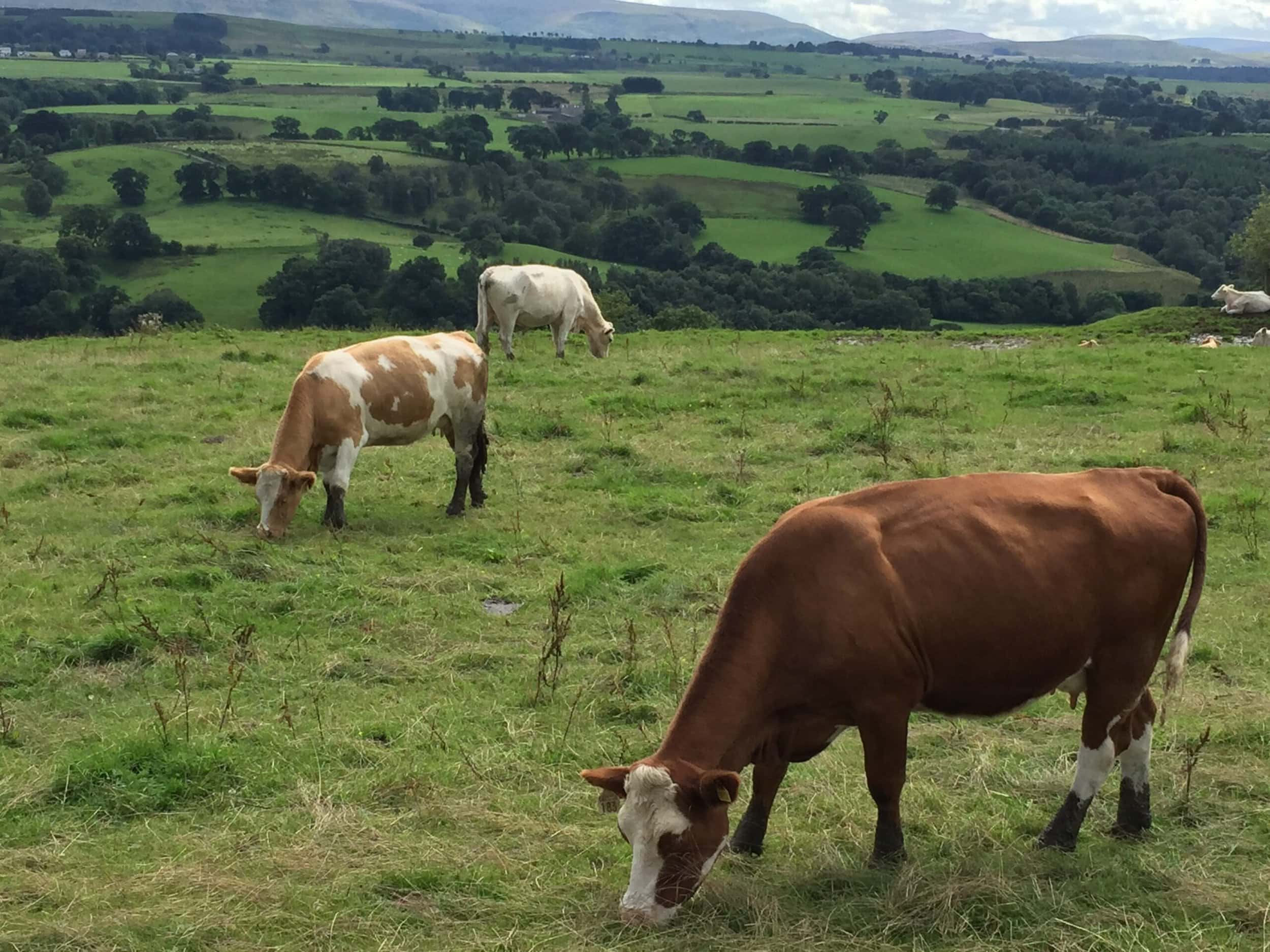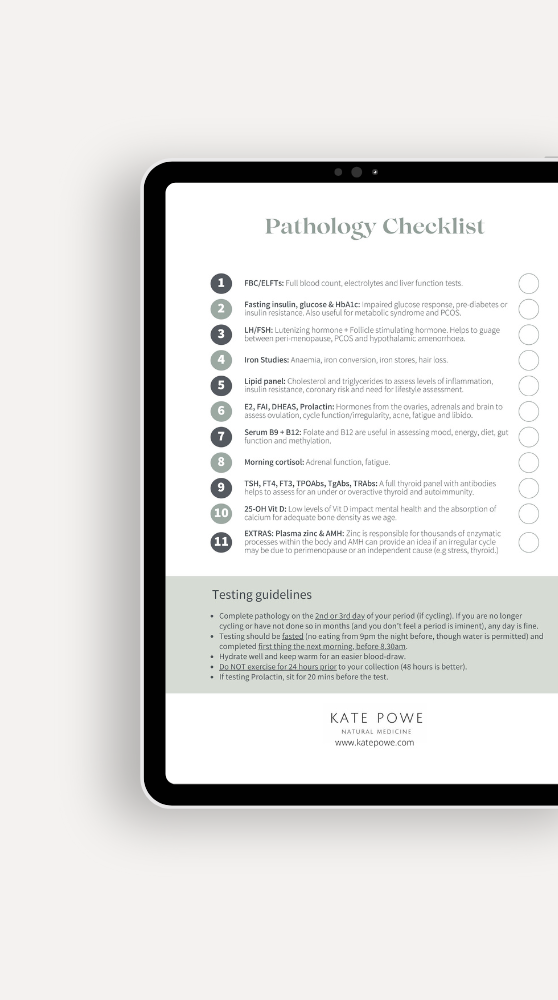So you have endometriosis [or you think you may have it]. Let’s take a look at some endometriosis treatment options from a natural perspective.
Not sure? Click Here for Part 2 and to learn more about the signs and symptoms of endometriosis.
Your GP or gynaecologist may have recommended hormonal or surgical endometriosis treatment options, or you may still be at the unsure stage, but you want to support your body as best you can before taking the next step. Regardless of your decisions throughout this journey, there are a number of things you can do right now to give yourself the best chance at decreasing pain, flow, bloating, inflammation and 0verall severity of your symptoms.
Endometriosis Treatment – Where do I start?
From a naturopathic perspective, diet and lifestyle are always number one. You need a willingness to make changes in both areas to see shifts in the severity of your symptoms.
Foods to include
- A plant-laden diet including lots of brassica vegetables such as: cauliflower, cabbage, kale, broccoli, brussels sprouts. These more fibrous veggies not only help bowel clearance and inhibit recycling oestrogen in the bowel, but contain glucosinolates in their natural form such as Indole-3-Carbinol and Isothiocyanates that may have potential in diverting oestrogen down its more protective pathway and inhibiting the development of hormone-sensitive cancers NB: take care if have hypothyroid issues as these foods can slow thyroid function.
- Nuts and seeds
- Sustainably sourced seafood
- Small amounts of organic grass-fed meat
- Hormone-free chicken/poultry
- Anti-inflammatory spices such as ginger and turmeric
- Liver and gut-supporting foods such as: onion, garlic, dark leafy greens, artichokes and apples
- Coloured vegetables and berry fruits
- Mixed herbs like parsley and coriander
- Lemon juice (in warm water each morning is a great liver kick-start)
- Filtered water
- Herb teas: green, dandelion, chamomile, calendula, calming blends
- Almond, rice or coconut milks (avoid carrageenan in ingredients, and agave)
Foods to avoid
- Dairy: including cheese, butter, cream, milk, yoghurt as they increase inflammatory prostaglandins. A2 milk, organic Jersey dairy or goats cheese/milk, organic butter and ghee may be used in small amounts in some people.
- Wheat + Gluten: including cakes, pastries, wheat-containing sauces, pastas, bread. Phytic acid in grain can aggravate endometriosis symptoms and gluten, even in non-coeliac individuals, can impair the tight gap-junctions within the GIT, leading to Intestinal Permeability (IP) and further inflammation.
- Grain-fed meat: high in inflammatory omega-6 and can increase prostaglandins.
- Pesticides: especially on sprayed fruits and vegetables.
- Fried or processed foods: high in inflammatory polyunsaturated fats.
- Refined polyunsaturated oils: high in inflammatory polyunsaturated fats. E.g. sunflower, safflower, canola oils.
- Refined carbohydrates and sugars: Highly inflammatory and further impacts insulin resistance. Avoid sugar, glucose, agave, corn-syrup, honey, molasses, golden syrup, rice malt syrup and all artificial sweetners. Concentrated natural sugars such as dates, dried apricots and other dried fruit and fruit yoghurts should also be avoided. 1 piece of fresh fruit per day is fine, and low-fructose fruits such as organic berries are a great option for low sugar, high anti-oxidant and nutrient content. Stevia (whole leaf) may be used.
- Caffeine: tea, coffee, chocolate.
- Alcohol: inflammatory, increases loss of magnesium and B-vitamins essential for managing stress and energy. Alcohol impairs liver detoxification and methylation/oestrogen clearance.
- Soy products: most are genetically modified and over-processed.
Endometriosis lifestyle guidelines
- Weight: maintain a healthy weight range.
- Exercise: sweat for at least 30 mins 4 x per week.
- Rebounding: jumping on a mini-trampoline can help free up movement of abdominal organs.
- Castor oil packs: using over the abdomen can help ease pain and soften adhesions.
- Avoid sprayed cotton products: especially sanitary pads and tampons. Look for organic options or alternatives such as a Diva or Moon cup.
- Reduce toxic load: use organic produce, natural makeup products and household cleaners, store foods in glass not plastic and minimise use of BPA plastics, drink filtered water, stainless steel cookware (no non-stick pans), never use cling-film/Glad Wrap or re-heat food in plastic containers.
- Reduce stress: relaxation, meditation, mindfulness, gratitude journaling.
Remember, endometriosis is a complex inflammatory and potential immune-dysfunction condition which may involve multiple physical and emotional aspects and systems within your body and it requires commitment to diet, lifestyle and potential mindset shifts, regardless of surgical decisions, to help heal.
Click Here for Part 1 My own endometriosis story; or
Click Here for Part 2 What is endometriosis? Signs + symptoms
Want to know more? Download my free E-book Beyond PMS – Understanding Endometriosis or see how you can Work With Me
Kate is a qualified naturopath who is passionate about helping women heal from hormonal havoc and inspiring women to know their own power, worth and wisdom.
Kate offers one-on-one Skype consults for irregular cycles, PMS and period pain, endometriosis, PCOS, peri-menopause, mood swings, fatigue and mental and emotional stress.
Simply drop me an email to see how I can help you!






